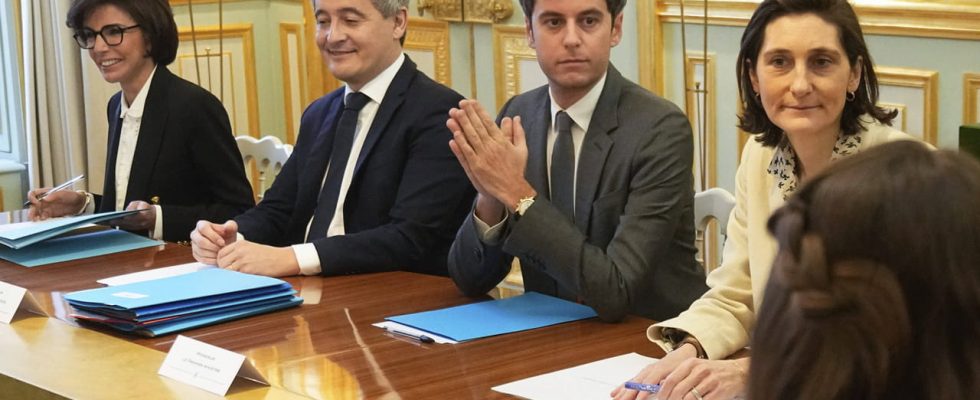Made up of 14 ministers, Gabriel Attal’s government is incomplete. A week after the start of the reshuffle, the names of the delegate ministers and secretaries of state are still awaited.
Appointed Prime Minister, Gabriel Attal took two days and numerous interviews with Emmanuel Macron to put his government in place. A lot of negotiations were necessary for the few changes announced on January 11, all the heavyweights of the executive having been maintained in their respective ministries. But it is clear that the rare changes have caused a lot of ink to be spilled: the appointment of Rachida Dati to Culture, that of Catherine Vautrin, another Sarkozyist, to a super ministry bringing together Labor, Health and Solidarity and finally the attribution of the Ministry of National Education to the Minister of Sports, Amélie Oudéa-Castera.
Only a handful of changes and an incomplete government more than a week after the start of the reshuffle and the appointment of Gabriel Attal to Matignon. The announcement of the first half of the government had, however, already been a long time coming and it only concerned 11 ministers and 3 essential delegated ministers (spokesperson, relations with Parliament and gender equality). Although the Prime Minister has stated that he wants a tighter government, there are still around fifteen Secretaries of State to be appointed.
Continuation and end of the redesign…
The appointment of the secretaries of state was announced in the week of January 15, the week following the announcement of the first 14 members of the government. But while Gabriel Attal’s general policy speech seems to have been pushed back to the week of January 22, the end of the reshuffle could also be postponed by a few days. No deadline or deadline requires the Prime Minister to rush, not even the Council of Ministers to which the Secretaries of State are only invited by invitation. What justifies the postponement of the appointment of secretaries of state? Persistent disagreements? A game of musical chairs with ministers not reappointed, but having to remain in government? No one knows, but a week after the reshuffle, the ministerial team is still not complete.
Already known names in the running
The date of the continuation, and end, of the reshuffle is therefore still unclear, like its composition. However, some rumors persist on this point and according to some of Elisabeth Borne’s ministers could remain in the government, but in other positions. Example with Agnès Pannier-Runacher: the Minister of Energy Transition could be Secretary of State in charge of Health to support Catherine Vautrin. Roland Lescure, former Minister of Industry, could be in charge of Energy in Bruno Le Maire’s enlarged Bercy. The Minister of the Economy would also like to keep several ministers such as Jean-Noël Barrot in Digital, Olivia Grégoire who was in charge of small and medium-sized businesses or even Thomas Cazenave in Public Accounts.
